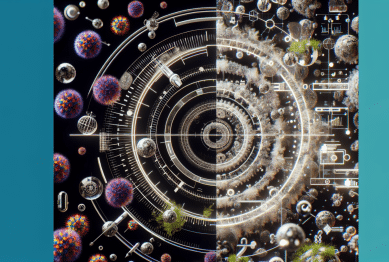Feeling mentally drained, uninspired, and stuck in a creative rut? You’re not alone. Idea fatigue is becoming a significant issue in today’s fast-paced, hyper-connected world. Whether it’s in the workplace, in creative fields, or just in daily life, many are experiencing mental burnout from constant pressure to come up with innovative ideas. But what causes idea fatigue, and how can we fight back against it? Let’s dive into the roots of this phenomenon and explore strategies to regain mental clarity and creativity.

The Modern Causes of Idea Fatigue
Idea fatigue isn’t something that occurs in isolation. Several factors in our modern lifestyle contribute to this overwhelming mental exhaustion. From the pressures of constant work deadlines to the demands of social media and an overstimulation of information, there’s no shortage of triggers.
- Constant Information Overload
In today’s digital age, information is at our fingertips, 24/7. With endless articles, social media updates, and news, it’s no surprise that our brains can feel overloaded. Studies show that the average person processes more information daily than someone living a century ago, leading to mental fatigue that makes it harder to come up with fresh ideas. - Workplace Pressure
In many industries, the pressure to innovate and produce new ideas constantly is immense. Creative professionals, in particular, are often expected to “deliver” groundbreaking work regularly, which can be exhausting. This demand creates a cycle where ideas feel forced, resulting in a lack of creativity and burnout. - The Fear of Missing Out (FOMO)
We live in an age where everyone seems to be doing something innovative, launching new businesses, or sharing personal achievements online. This creates a fear of being left behind or not keeping up. As a result, we pressure ourselves to come up with new ideas constantly, without giving ourselves the chance to pause and refresh. - Multitasking and Distractions
The rise of multitasking, often driven by the need to manage multiple projects or respond to emails and messages at the same time, contributes to mental exhaustion. Research has shown that constant task-switching can reduce cognitive performance and creativity, leading to more stress and less productive idea generation.
The Impact of Idea Fatigue
While it might seem like a passing issue, the effects of idea fatigue can be long-lasting and far-reaching. Let’s break down how this phenomenon can affect our daily lives and overall well-being.
- Stifled Creativity
When you’re mentally exhausted, it’s challenging to come up with fresh, innovative ideas. Over time, this can create a sense of inadequacy or frustration, as you may feel like you’re no longer capable of generating useful concepts. In professional settings, this can also affect your performance, particularly if you’re in a role that requires constant innovation. - Decreased Productivity
Ironically, the more pressure we put on ourselves to generate ideas, the more our productivity declines. Mental exhaustion can make it harder to focus, leading to delays, unfinished tasks, and feelings of incompetence. If you’ve ever spent hours brainstorming without coming up with a single viable idea, you know the frustration it brings. - Increased Stress and Anxiety
The mental toll of constantly feeling the need to perform or come up with new ideas can lead to stress and anxiety. This, in turn, can affect your health, sleep patterns, and overall emotional well-being. The stress of ‘running out of ideas’ can create a vicious cycle where the more you try, the more mentally blocked you become. - Burnout
Over time, if idea fatigue is left unaddressed, it can lead to full burnout. This is especially prevalent in high-stakes environments like startups, the creative industry, and tech. Burnout not only hinders your ability to generate ideas, but it can also leave you feeling disengaged and unmotivated to continue working or pursuing projects you once enjoyed.
How to Overcome Idea Fatigue
To combat idea fatigue and restore mental clarity, consider these practical steps to refresh your mind and spark creativity.
- Take Regular Breaks
Stepping away from tasks may seem counterproductive, but it’s essential for overcoming idea fatigue. Frequent breaks allow your brain to recharge, and a relaxed mind is more likely to generate fresh ideas. Research shows that creativity thrives when we let our minds wander. - Embrace Rest and Sleep
Sleep is crucial for mental recovery and creativity. It helps the brain process information and strengthen the connections necessary for innovation. Prioritize good sleep and short naps to boost cognitive function and improve idea generation. - Set Boundaries
In today’s always-connected world, it’s easy to feel the need to be constantly available. Set boundaries for your work hours and protect downtime to avoid burnout. Limiting social media use and turning off notifications during creative tasks can help maintain focus. - Diversify Your Activities
Engaging in activities outside of your usual routine can help reset your mind. Whether it’s reading, walking, or trying a new hobby, switching gears allows you to recharge and discover fresh perspectives that inspire new ideas. - Practice Mindfulness and Meditation
Mindfulness practices, like meditation, help reduce stress and clear mental clutter. By focusing on your breath and staying present, you reduce cognitive overload and allow your creativity to flow more freely. Many find that mindfulness helps them tap into deeper, more innovative thoughts.
By incorporating these strategies into your daily routine, you can combat idea fatigue and restore your creativity, enabling you to approach challenges with renewed energy and fresh insights.
Conclusion
Idea fatigue is a modern-day affliction fueled by pressure, constant distractions, and the overwhelming demands of modern life. Understanding its causes and effects can help us address it effectively. By taking time to rest, creating boundaries, and engaging in activities that foster creativity, we can overcome idea fatigue and regain our mental clarity. Creativity isn’t a constant flow—it requires nurturing and care. By giving ourselves the space to recharge, we can continue to innovate, create, and grow.
References:
- Thomas, D. and Tian, L. (2021) ‘Hits from the Bong: The Impact of Recreational Marijuana Dispensaries on Property Values’ Regional Science and Urban Economics 87, article number 103655. Available at: https://www.sciencedirect.com (Accessed: 30 July 2025).
- Gulddal, J. (2020) ‘That Deep Underground Savage Instinct: Narratives of Sacrifice and Retribution in Agatha Christie’s Appointment with Death’ Textual Practice 34(11), pp. 1803-1821. Available at: https://www.tandfonline.com (Accessed: 30 July 2025).
- Faulkner, W. (2000) Light in August. Available at: https://www.vlebooks.com (Accessed: 30 July 2025).









